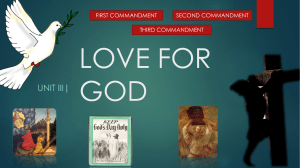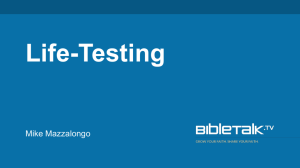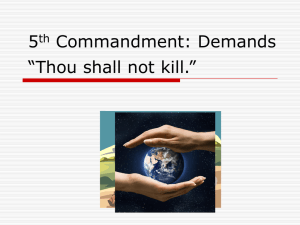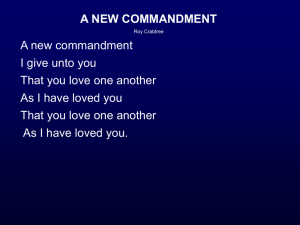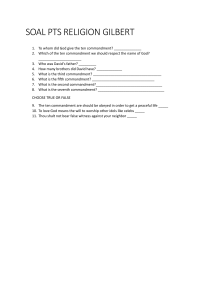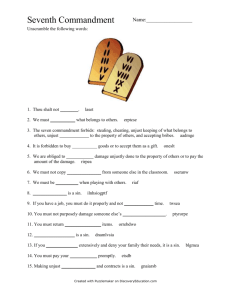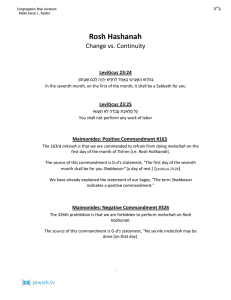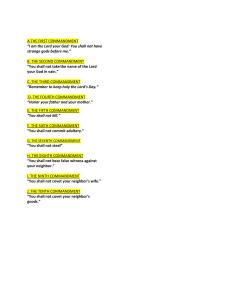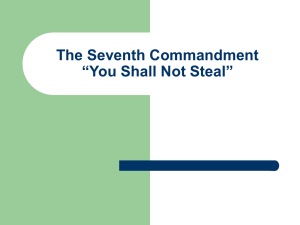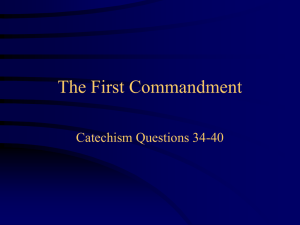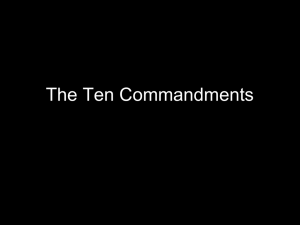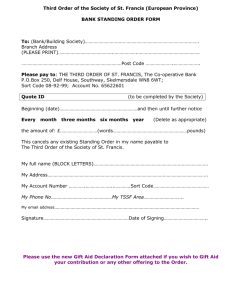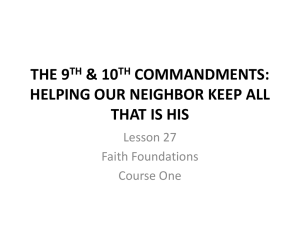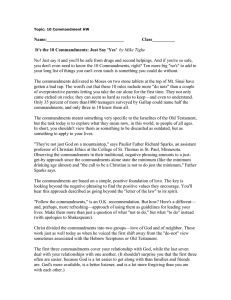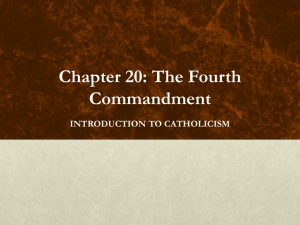God Gives Us the Law
advertisement
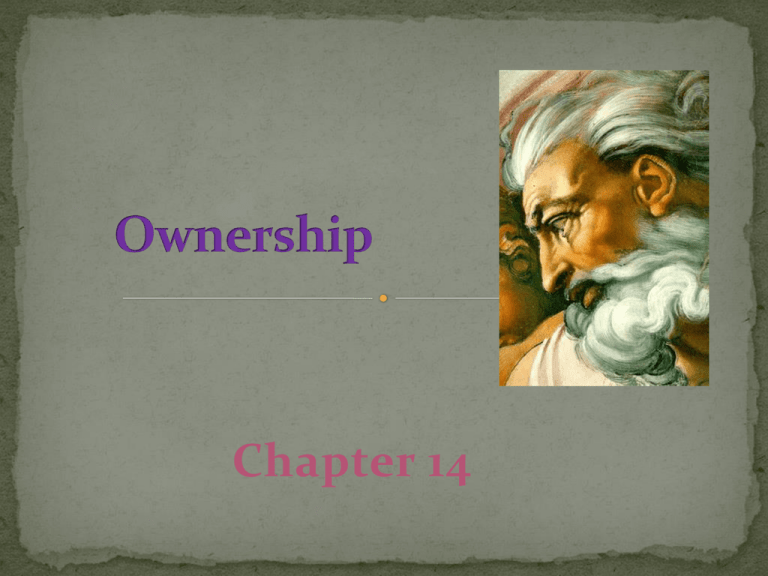
Chapter 14 God gave man the earth and its resources to use, enjoy, appreciate, and share freely with one another. This is called stewardship. Individuals or groups of people may own property. Every person has the right to own property. Property requires respect for ownership. The Seventh Commandment teaches us not to steal or damage the property of others. We have obligations when we use another’s property by permission. We must return it in the same condition in which we received it. If we damage or lose it, we must make restitution. The Seventh Commandment forbids fraud and usury. We must be just in payment for goods and services we receive. The Tenth Commandment governs our desire for possessions. Two ways this commandment is broken are through envy and avarice. Envy is being resentful of another’s success. Avarice is greed. Stealing is wrong because it is unjust. The Seventh Commandment governs wages: just wages must be paid, and just work must be done for wages. Charity requires us to share what we have with those in need. Almsgiving is a work of justice and charity. If someone cannot provide for his needs by his labor, others are required to share of their excess. What does usury mean again? Vocabulary http://www.quia.com/jg/2242362.html He was known as “the poor man”. He earned this title by owning little more than the shirt on his back. Saint Francis said that he was married to “Lady Poverty” and never wanted to own anything. Francis roamed the hillsides of Assisi, he praised God, he lived in the open; he prayed long hours; he begged; and he rebuilt a chapel that had fallen in disrepair. Others began following his lead and soon a great religious order grew up around Francis’s example. St. Francis is set before us as one who had the right attitude toward material possessions. We should not set our heart on riches.
